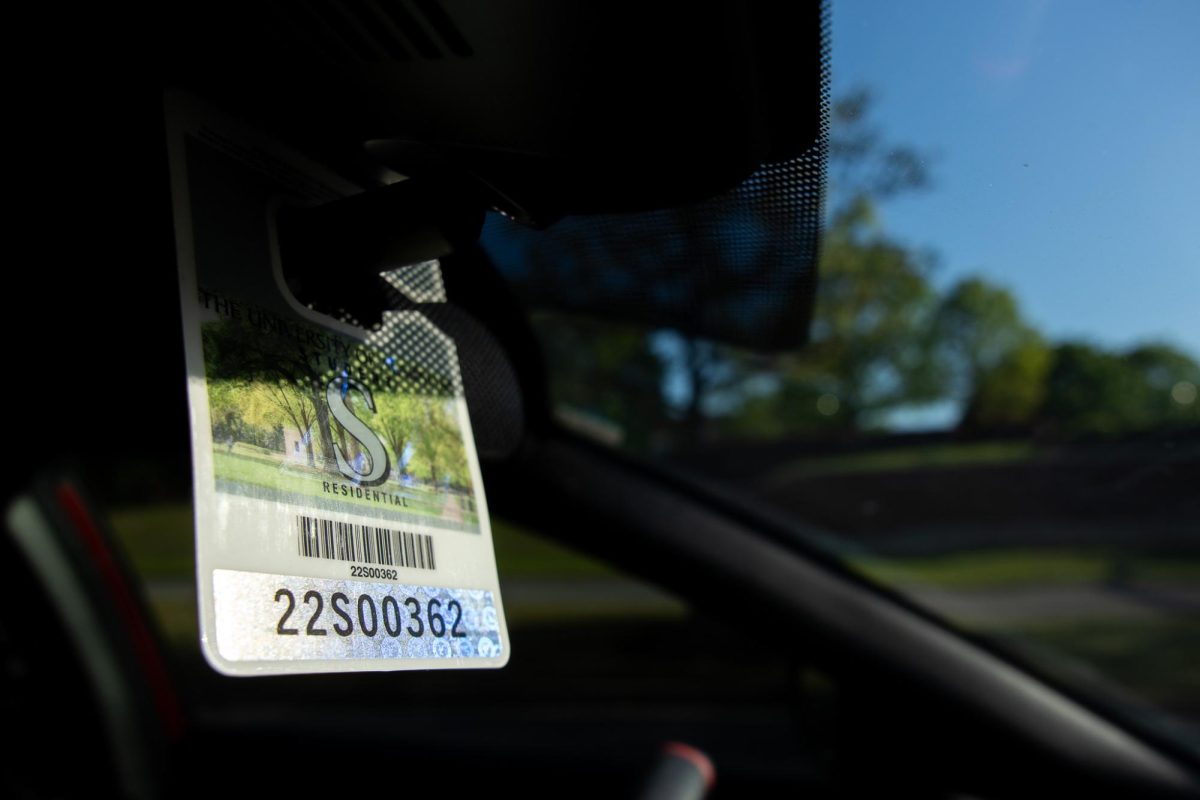The University of Alabama has seen a steady increase in parking pass sales in recent years.
According to records of parking passes sold in each academic year, the total faculty and student parking passes sold in academic year 2023 was 21,462, with a slight increase in 2024, which sold 22,310 passes. While sales increased slightly in academic year 2025 with over 22,427 sold as of January, they remain below previous years in sales.
From 2014 to 2025, the highest number of parking passes sold was 23,941 in academic year 2018, with the lowest year being 2021, with 21,925 passes sold.
“As of March 18, student permit sales are up 7.2% so far this year, with several months to go in the current academic year, compared to last year’s total,” said Amy Haines, associate director of parking at the University.
Despite the increase in sales, students say that rising costs, campus accessibility and alternative transportation options are why they haven’t purchased parking passes.
Jack Belisle, a junior mechanical engineering major, said he believes a parking pass is unnecessary for everyday commuting.
“Mostly it was too expensive,” he said. “I didn’t want to pay that much for a terrible spot far away from the engineering buildings.”
Instead, Belisle bikes to class, as he finds it easier and more convenient.
“I live a 15-minute bike ride away from my classes, so it didn’t make a lot of sense to spend 10 minutes driving to a lot and walk another 20 minutes to class,” Belisle said. “Even when it’s raining or cold, I would still be in the elements when walking from my car.”
With on-campus housing, meal plans and free bus services, daily transit needs are easily accessible without a car.
The Crimson Ride system allows students to reach classes, dining halls and major campus facilities without personal transportation. Grocery stores and pharmacies are located within walking distance or along the bus routes as well.
For some freshmen living on campus, the cost of owning a car outweighs the benefits. Expenses such as gas, insurance and parking passes add up quickly. Some students choose to rely on others for occasional off-campus trips rather than purchasing a parking pass. Others said they find that walking or biking is a simpler and more cost-effective alternative.
AJ McLaughlin, a freshman mechanical engineering major, decided not to buy a parking pass after weighing the pros and cons.
“Since I am living in the dorms with a full meal plan, I knew my transit times would be minimal for both food and classes,” he said. “The only other thing I would need a car for would be going to church or having fun with friends, but it is walkable.”
McLaughlin came to the University from New Hampshire, which is around a 22-hour drive. “Combine all that with the price of buying a car, gas and a parking pass, I had my answer,” he said.
Many students living off-campus park at the East Commuter lot, which is near the Student Recreation Center, which can be up to a 20-minute walk to most academic buildings.
Not all students avoid buying a parking pass, but many still try to minimize costs.
“The walk from the [East Commuter] lot to my classes isn’t very long, and paying more for a walk that is less than one minute isn’t worth it in my opinion,” said Sasha Prouty, a freshman mechanical engineering major.
From 2018 to 2023, there was a decline in commuter parking pass sales. Northeast Commuter passes dropped from over 6,396 to 4,266. West Commuter passes saw a similar drop in sales, going from 1,512 to 914 over the same time.
The Northeast and Southeast Commuter lots were merged into one East Commuter lot during the fall 2024 semester.
“For this academic year, Transportation Services enhanced commuter zone parking lots on campus to accommodate varying student schedules by combining the Northeast and Southeast Commuter Zones into the East Commuter Zone and allowing the permit for the West Commuter Zone to also be valid in the East Commuter Zone. We also sell discounted passes for students who want to bring a car after spring break,” Haines said.
Meredith Manke, a freshman neuroscience major, bought a Ridgecrest parking pass because of how close it is to her dorm.
“I live in Ridgecrest South, and the parking garage is directly underneath my building, which is very convenient,” she said.
Although she has one this year, Manke said she is reconsidering buying a parking pass for next year.
“The parking zones are slightly inconvenient if you have classes across campus, as there is no truly centralized parking space for commuter students,” she said. “At that point, I’m not sure if a parking pass is worth having, as it’s rather expensive.”
Finding an available parking spot can be difficult for many, leaving students to park further away than intended.
“While ample parking remains available for students, faculty and staff on campus, the challenge lies in providing convenient parking spaces that meet individual preferences. Due to our landlocked campus, it’s not possible to have parking adjacent to every building, but we are committed to ensuring the safest and most efficient use of UA’s parking resources,” Haines said.
Isaac Titherington, a freshman marketing major, has a residential parking pass but has a hard time locating an open parking spot.
“Finding a parking spot can be pretty frustrating, especially during peak hours. The lots by Presidential Village fill up quickly, and I often have to drive around to find an open spot or park further away than I’d like,” he said. “It sometimes feels like there aren’t enough spaces for the number of students with passes, which makes parking more stressful than it should be.”















